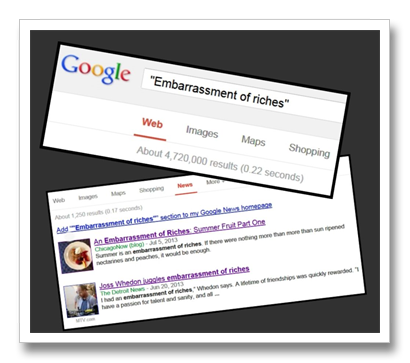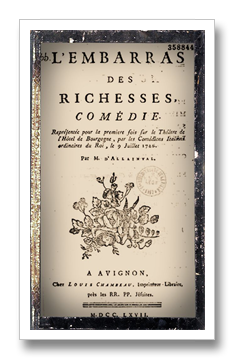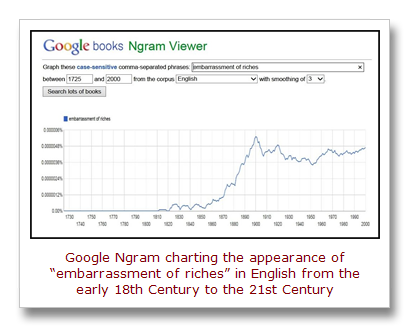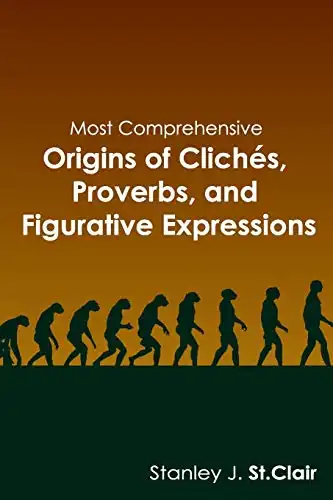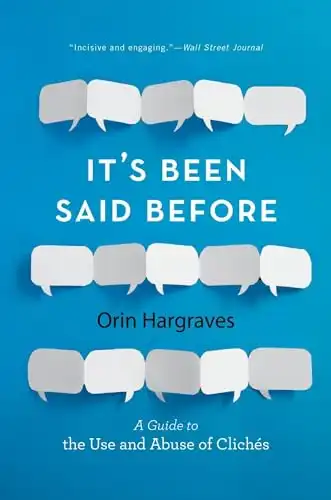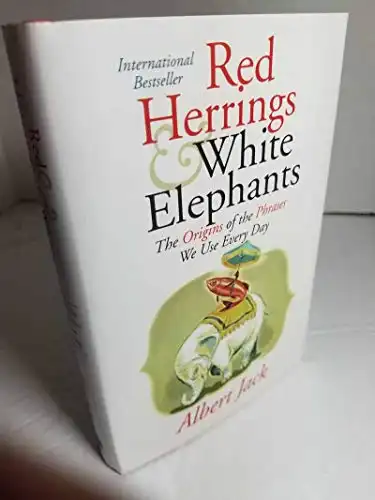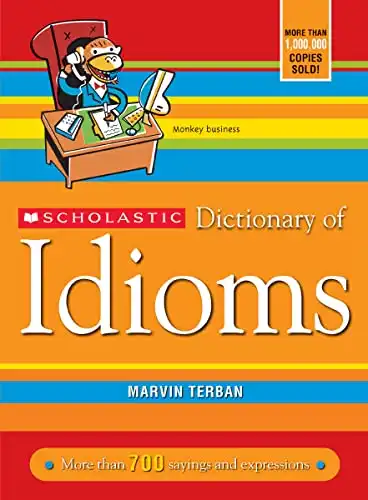“Embarrassment of riches” is a widely-used idiomatic expression that most people are familiar with.
If you Google the phrase, you get millions of hits.
At any given time, if you limit your search to Google’s News section, you’ll find it in hundreds of of recent news-related stories and posts.
The phrase “embarrassment of riches” is not typically used in the literal sense of being embarrassed by having too much money. In fact, it’s not usually used to refer to financial wealth.
It’s generally used to describe an abundance of something else, typically something positive — some notably greater-than-average abundance of attributes, options, benefits, skills or talents.
Often, it expresses the idea that there are so many of these good things that it’s difficult to pick or highlight just one.
If you do a search for the origin of the term “embarrassment of riches” you’ll see thousands of web pages and book references that say it originated in 1738 as John Ozell’s translation of a French play titled L’Embarras des richesses. And, the literal translation of that title in English is indeed “The Embarrassment of Riches.”
However, the long-standing traditional claim that Ozell used that simple literal translation for the title of his English version of the play is wrong. I guess the claim has been repeated so many times by so many sources it’s assumed to be a fact. But it’s plain, flat out wrong.
John Ozell was a minor literary figure in 18th Century England. His birth date is unknown. He died in 1743.
Ozell made his living as an accountant. In his spare time, he liked to translate French books and plays into English, though by most accounts he was not particularly good at it.
One of the plays he translated was L’Embarras des richesses by the French playwright Léonor-Jean-Christine Soulas d’Allainval (1700-1753).
D’Allainval is also known as Abbé D’Allainval, which means “Abbot of Allainval,” because that’s what he called himself.
Adding Abbé to one’s name was an odd affectation used by some French bohemians at the time. Apparently, it was a sort of proto-punk poke in the eye of the Catholic Church. At times, D’Allainval even wore ecclesiastical garments. But, in reality, he had no real connection with the Church.
L’Embarras des richesses was a Moliere-like comedy of manners that became D’Allainval’s best known play. It premiered in Paris on July 9th (9 Juillet in French) in either 1725, according to some sources, or in 1726 according to others.
One of those dates is obviously wrong. Centuries later, it’s hard to know which, though most say the date was July 9, 1725.
Meanwhile, thousands of websites and books give 1738 as the date for Ozell’s English translation of the play. And, that date is demonstrably wrong.
Various contemporary and scholarly publications confirm that Ozell officially registered publication of his English translation in 1735.
More significantly, those sources and others document the fact that the English title Ozell gave to the play was The Plague of Riches — not The Embarrassment of Riches or An Embarrassment of Riches.
The historical record is fuzzy on whether the play was actually performed in English.
There are written accounts that say it was publicly performed for the first time in London on October 9, 1738 by a company of French comedians. They apparently performed it in French. But their show could be the reason behind the incorrect use of 1738 as the date for Ozell’s version of the play.
One thing seems clear to me now that I’ve looked into it: the thousands of websites, books and other sources that give Ozell credit for originating or coining the phrase “embarrassment of riches” in English are embarrassingly wrong.
If you look at a Google Ngram charting the appearance of “embarrassment of riches” in English, based on digitized scans of millions of books and other publications published during the past five centuries, you discover that it doesn’t appear to have been in widespread use until the early 1800s.
However, when I emailed the renowned quotation expert Nigel Rees about the phrase, he told me he’d found examples showing the phrase was being used in English by 1725 or so.
Nigel said in his email to me: “I would guess that whether or not Ozell’s play was actually performed or simply existed as a translation, the phrase entered the language because the French title translates itself into English without the need for a translator. Perhaps people simply became aware of the original French phrase from the 1720/30s onwards and, because it appealed to them, just used it. The Plague of Riches is not nearly so attractive!”
* * * * * * * * * *
Comments? Corrections? Post them on on the Famous Quotations Facebook page.
Related reading: books about the origins of common clichés and idioms…


